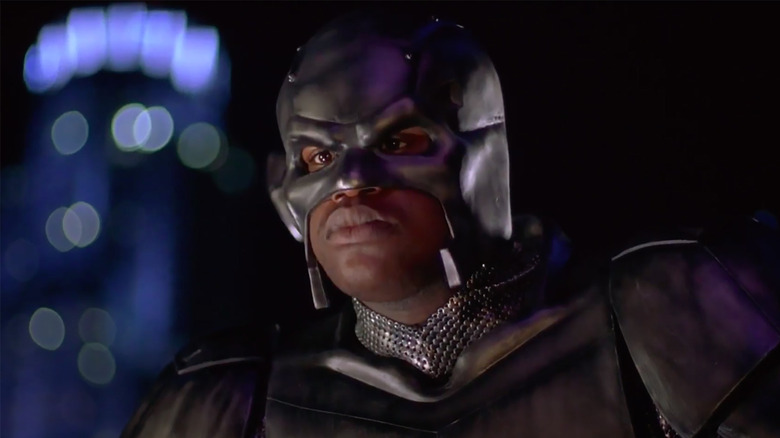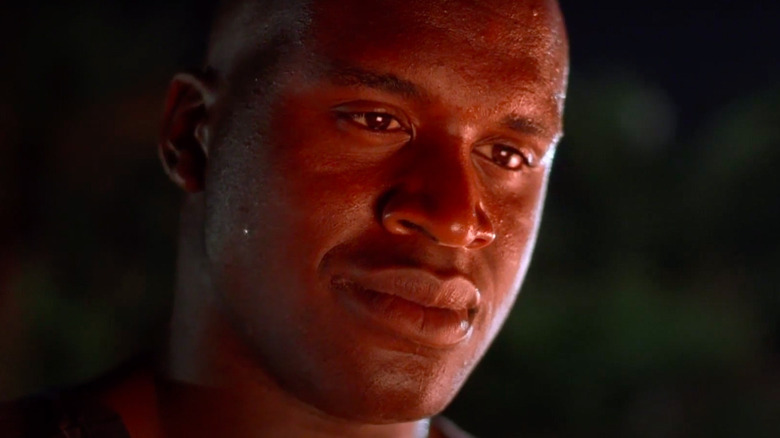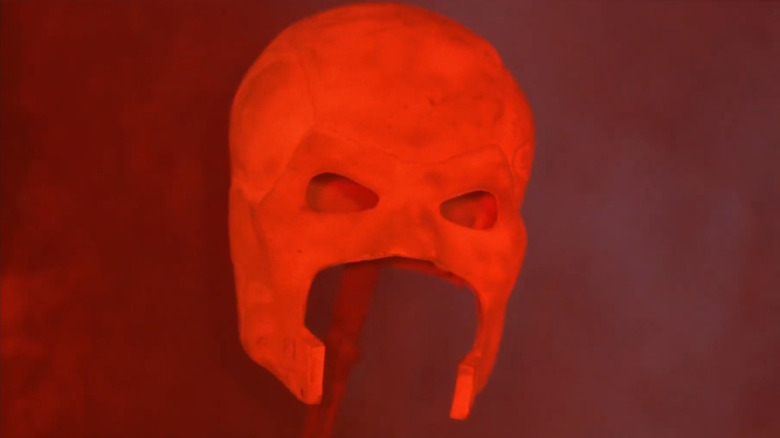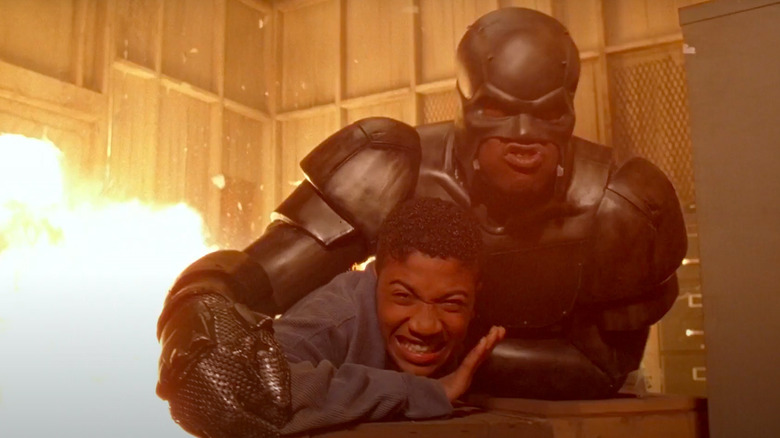Casting Shaquille O'Neal Might Have Been Steel's First Step Towards Becoming A Box Office Flop
Comic book collectors of the 1990s remember one particular pop culture milestone well. DC Comics, in one of the best-publicized comic book events ever, advertised that Superman — the stalwart central figure of the entire genre — was going to die. Television news reports covered the event, and fans were interested in the character like never before. Comic book stores had lines around the block to pick up a copy of Superman #75, which came sealed in a black plastic bag emblazoned with a dripping, bloody Superman symbol. A new monster, Doomsday, was invented to kill Superman, and the Man of Steel was punched to death. Although DC always had a plan to resurrect Superman, readers in 1992 felt that his death might actually be permanent.
However, in the brief period after Superman's death, and prior to his resurrection, DC Comics introduced four new Superman replacement characters. There was a robotic, sunglasses-wearing death bot called The Eliminator. There was a Superman who appeared to be a Terminator skeleton with Clark Kent's face attached. There was the youthful Metropolis Kid. And there was John Henry Irons (sigh, yeah, I know), a man who covered his body in high-tech, high-powered armor, wielded a mighty sledgehammer, and went by the name of Steel.
It seems that no one less than musical genius Quincy Jones was a fan of the new Steel character, as was superstar TV producer David Salzman. By 1997, the Superman feature films had kind of run their course ("Superman IV: The Quest For Peace" had bombed a decade earlier, and the character was still moribund). Jones and Salzman thought a great way to breathe life into the Superman universe was to go straight to John Henry Irons.
Evidently, it was Jones and Salzman who approached basketball superstar Shaquille O'Neal to play Steel. That might have been their first mistake.
Can athletes act?
The 1997 film version of "Steel" was written and directed by TV luminary Kenneth Johnson, who worked on notable genre shows like "The Bionic Woman," "The Incredible Hulk," "V," and "Alien Nation." He was no slouch when it came to creating beloved mainstream genre entertainments. He knew how to write a character like Steel, but immediately felt trepidation when O'Neal was cast in the role.
While O'Neal was physically imposing — he stands at a towering 7'1" — he was clearly no actor, having already appeared in the 1996 kid-friendly hip-hop genie film "Kazaam," a truly terrible picture. Although he was fine playing a version of himself in William Friedkin's "Blue Chips." Johnson knew that he would need a notable movie star at Shaq's side to buoy the film. He wasn't granted one.
In a 2017 interview with Vice, Johnson recalls the sinking feeling he felt making "Steel." He also recalled being brushed off. In his words:
"I said, 'Guys, if you're gonna put Shaq in the lead, then you've got to at least have a major movie star next to them. Or at the very least, a few in some supporting roles so that the picture can open well.' They go, 'Oh let's just keep going with it, and we'll talk about that with [WB presidents] Lorenzo di Bonaventura and Bill Gerber.' [...] I mean Shaq is a nice guy, but he had done two movies, neither of which made any money or noise. He's not an actor. Yes, he was a big persona and a great role model for kids and all that, but he's no movie star."
One doesn't need to act well to be a "movie star," necessarily — look at Arnold Schwarzenegger — but O'Neal seems to have lacked that "It" quality.
Trying to walk away
Johnson seems to have seen the writing on the wall early on, and even tried to leave the project. But it seems that Warner Bros., Jones, and Salzberg were determined to make "Steel" with O'Neal. The budget was also relatively small for a studio genre picture — $16 million at the time — making for a superhero suit that looked rubbery and unconvincing. Warner Bros. was adamant, however, that "Steel" was going to be huge. In their studio lab somewhere, WB had determined that the alchemical mixture of Steel and O'Neal was guaranteed gold. Johnson rolled with it, saying:
"A couple of times I was actually ready to walk away. But they seemed so convinced that this could work. All of their marketing research had indicated that this was a great idea and I'm thinking, it's Warner Bros., they've done a few things. They should know what they're doing and I see the faith they have in this. Maybe they're seeing something that I'm not, so let's see what I can put together."
Johnson did try to do the best he could under the circumstances, but the higher-ups didn't seem to much care. They just needed it fast and cheap. They needed to strike while O'Neal was as hot as the molten metal used to make Steel's suit. That, at the very least, he could do. Johnson said:
"Then they tell me, they don't need it to be good, they just need it Thursday of that week. When I tell you, it was quick. It was quick. This was when Shaq was on the Olympic basketball team, around the time when he was picked up by the Lakers. So they needed a script and a story in a hurry."
The fate of Steel
In the same interview, Johnson also lamented the tone of the source material. Comic books were going through an "edgy" phase in the mid-1990s, and "Steel" was rife with gore and violence. Johnson was never much interested in gore, and says he refused to direct "RoboCop" some years before because of its extreme violence; he called it "ugly and mean-spirited." He feels he was able to make the superhero weapons "softer" in "Steel," giving his characters sonic cannons and electrical devices that wouldn't smash people's heads open. More time would have allowed him another draft, but the production was rushed. "It had no innate humanism going on in it," he said. "I would have taken a pass at the script to put some humanity in it but they passed."
The resulting film is a cheap, silly mess, and is often considered one of the worst comic book movies of all time. It currently holds a mere 12% approval rating on Rotten Tomatoes, and it bombed pretty hard. On that $16 million budget, it only made $1.7 million worldwide. Perhaps most notably, there have been no modern nostalgia-based essays calling for its re-litigation 20 years after the fact. "Steel," it seems, had not grown in estimation over time. Should a Warner Bros. producer feel the need to include O'Neal in some upcoming superhero multiverse project, it's unlikely fans will cheer.
This author is not one to leap to the defense of "Steel." The rushed production, low budget, and bad leading performance are still just as repellent now as they were 25 years ago.



